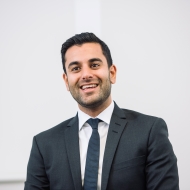About TMT Law
Lexis®+ TMT is an online practical guidance product for contentious and non-contentious lawyers dealing with technology, media and telecommunications matters.
New technologies
Guidance for key emerging technologies, such as AI, NFTs, the Metaverse and autonomous vehicles, explaining both how the technologies work and the key legal regimes (existing and new) that apply to their operation.
Information technology
Core content for all TMT lawyers, this topic contains key 'go-to' precedents and practice notes at the route of most TMT related issues. Some of most popular areas are the software and cloud computing topics.
Outsourcing
Our content covers simple outsourcing transactions as well as those with a more complex structure, and the impact of hyperscalers and recognised market practice relating to the negotiation and drafting of affected terms.
Expertise
Whether you're advising on adtech, cookies or NFTs, Lexis+® TMT has the know-how and tools to help you succeed.
Latest TMT News
Ofcom has published its final guidance on how local analogue commercial radio licensees may comply with new local news and information requirements,...
One complaint was received by the Advertising Standards Authority (ASA) about comparative claims made on Practice Pal Ltd’s website for its school...
The Department for Culture, Media and Sport (DCMS) has laid secondary legislation to implement the Media Act 2024, bringing video-on-demand services...
The Department for Culture, Media and Sport (DCMS) has announced that it will extend statutory regulation to additional television electronic...
MLex: The British Equity Collecting Society (BECS) has exercised an opt-out for its audiovisual performers from the EU’s text and data mining...
Latest TMT Practice Notes
Image rights—protection, exploitation and taxationFORTHCOMING CHANGE: it was announced at Budget 2025 that the government will legislate in Finance...
Alternative service—principlesThis Practice Note considers alternative service for court documents. The relevant provisions are set out in CPR 6.15...
Dealing with the Advertising Standards AuthorityWho/what is the ASA?The Advertising Standards Authority (ASA) is the UK’s independent regulator of...
How to run a compliant direct marketing campaign—digitalThis Practice Note is a ‘how to’ guide on running a compliant B2C direct digital marketing...
Online Safety Act 2023—enforcement trackerThis Practice Note tracks the progress of Ofcom’s enforcement activities under the Online Safety Act 2023...
Latest TMT Precedents
Individual image release waiving rights in photographsFrom: [insert name and address of individual]To: [insert name and address of photographer]Date:...
Database sale agreement—including provisions for personal data—pro-assignorThis Agreement is made on [insert date]Parties1[insert name] [of OR a...
Interest on late payment clause1Interest on late paymentIf either party fails to make payment in accordance with this Agreement the other party shall...
Mobile app privacy policy—genericSTOP PRESS: On 19 June 2025, the Data (Use and Access) Bill received Royal Assent, becoming the Data (Use and Access)...
Online consumer and business terms for the supply of services—short-form1About usWe are [insert trader’s full legal name][ (trading as [insert trading...
Latest TMT Q&As
Featured TMT content
What are perpetual, irrevocable and royalty-free licences?
Reputational damage claims—alternative causes of action
Reputational damage claims—alternative causes of actionThis Practice Note considers the relationship between causes of action for reputational damage...
Defamation
DefamationThe tort of defamation is governed by a mixture of statute and common law. The relevant statutory law is contained in:•the Defamation Act...
Software escrow
Software escrowIntroductionEscrow is the process of two or more parties placing property or instruments in the hands of a trusted third party (an...
Defamation—limitation
Defamation—limitationThe ordinary time limit for defamation and malicious falsehood claimsA claimant must commence a claim for defamation within one...
Defamation and malicious falsehood—publication
Defamation and malicious falsehood—publicationThis Practice Note examines the role of publication in an action for defamation or malicious falsehood....
Defamation—defences
Defamation—defencesDefencesThere are a number of substantive defences to a defamation claim, the majority of which are now, since the Defamation Act...
Malicious falsehood
Malicious falsehoodThis Practice Note provides an introduction to the tort of malicious falsehood. Unlike a claim for defamation, there is no...
Defamation and social media
Defamation and social mediaThe internet and, in particular, social media is a high risk area for defamation litigation. Content posted on blogs,...
Websites—compliance requirements
Websites—compliance requirementsConsideration of electronic data interchange (EDI) arrangements, blockchain, smart contracts or sector-specific laws...
Deepfakes
DeepfakesThis Practice Note considers the following legal issues, technical information and applications of deepfakes:•What is a deepfake?•How...
Does the Unfair Contract Terms Act 1977 apply to business-to-business contracts and to what extent might it restrict a contract term permitting variation of terms and conditions on notice?
Notice and take-down letter—defamation
Notice and take-down letter—defamationAddress of Website OperatorDear [insert organisation name]Notice and take-down letterWe act for [insert client...
What do the words ‘defend, indemnify and hold harmless’ mean?
Using framework agreements for services
Using framework agreements for servicesFramework agreements (sometimes referred to as master services agreements) are essentially umbrella agreements...
Do you have a letter of claim (cease and desist) letter for slander damaging professional reputation?
Copyright in films and television programmes
Copyright in films and television programmesFor the purposes of copyright law the term 'film' means a recording, on any medium, from which a moving...
Television format rights
Television format rightsWhat is a television format?A television format is a concept or idea for a television programme or series of programmes...
Associated legal terms
G-Cloud
The UK government cloud procurement frameworks and digital marketplace for public sector bodies to procure cloud services and other resources.
Publishing Agreement
An agreement in which a publisher is granted rights to print and/or publish a proprietor’s work in printed format and potentially also in certain subsidiary rights such as audio and electronic formats.
Software as a service (SaaS)
SaaS is a service under which multiple customers gain access, usually through the internet, to what is typically the same software application. The application itself is physically deployed on servers owned or controlled by the supplier. This can be contrasted to ‘on-premise’ or ‘deployed’ software under which the application is installed on the customer’s own computer or infrastructure. The US National Institute of Standards and Technology (NIST) provides some basic descriptions of the cloud services. NIST describes SaaS as follows: ‘The capability provided to the consumer is to use the provider’s applications running on a cloud infrastructure. The applications are accessible from various client devices through either a thin client interface, such as a web browser (eg, web-based email), or a program interface. The consumer does not manage or control the underlying cloud infrastructure including network, servers, operating systems, storage, or even individual application capabilities, with the possible exception of limited user specific application configuration settings.’ Examples of SaaS in the consumer market include: • webmail (eg Gmail) • social media (eg Facebook, Twitter and Instagram) • online gaming (eg Steam) The range of SaaS provided for use by organisations is vast, and includes: • customer relationship management (eg SalesForce) • productivity tools (eg Microsoft Office 365) • expense management (eg Concur) • payroll management (eg ADP) • collaboration (eg Asana) Many SaaS products usually permit a limited amount of customisation as part of the in-built functionality of the service. Anything beyond this, such as source code modification for a particular customer, is rare (other than in relation to private cloud) as it negates the benefits of a one-size-fits-all solution.






